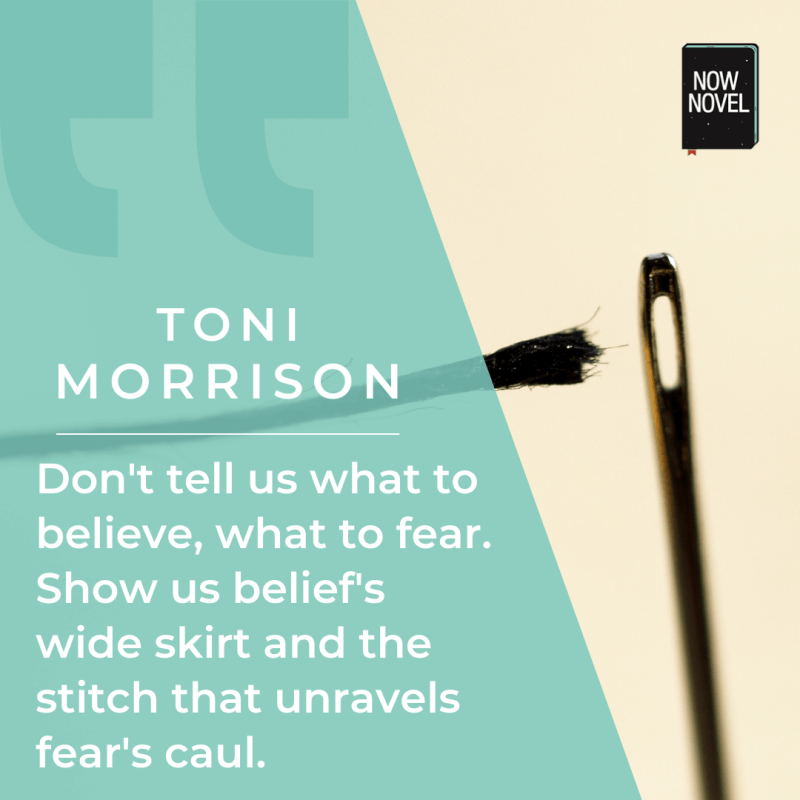Seeking writing inspiration? Read 10 writing prompt ideas drawn from top authors’ novels, books on writing, interviews, essays and blog posts:
Writing prompt ideas: 10 exercises
- Rewrite a journal entry as a first-person story
- Describe an abstract emotion, then recreate it in images
- Write an assumption you dislike, then counter it
- Write about a reunion – expectation vs reality
- Rewrite a popular fairytale or myth
- Whisper or shout the best and worst things
- Rewrite a place you know well as mythical
- Write about an object without SPAG rules
- Throw wildly contrasting characters into conversation
- Describe a party using an extended metaphor
Let’s get more specific and try writing exercises from these prompts:
1. Rewrite a journal entry as a first-person story
Keeping a journal has many uses. You begin to remember and record striking incidents and anecdotes. You develop a reliable writing habit that does not ask extreme imagination or ingenuity, yet supplies loose ideas to trawl for stories.
In an interview for The Paris Review, Nobel laureate Kazuo Ishiguro describes how keeping a journal during a trip to the US helped him grow his writing craft:
I was keeping a diary, in this kind of pastiche Kerouac prose. Every day I would write what happened: Day 36. Met so-and-so. We did this. When I got home, I took these thick diaries and sat down and wrote out two of the episodes, in depth, using a first-person narrator. One was about the time my guitar was stolen in San Francisco.
Kazuo Ishiguro, interviewed by Susannah Hunnewell, The Art of FIction No. 196, 2008.
To find your own writing prompt ideas:
- Keep a journal for a week, describing events or new things you’ve learned in a paragraph or two each day.
- Pick one of these entries after the week as the basis for a story.
- Write a short story using a first-person narrator, inspired by this journal entry.
2. Describe an abstract emotion then recreate it in images
Toni Morrison’s vivid characterization and mastery of tone and mood fills her novels with depth and insight.
In Morrison’s Nobel Lecture in Literature from 2003, the author says the following:
Make up a story… For our sake and yours forget your name in the street; tell us what the world has been to you in the dark places and in the light. Don’t tell us what to believe, what to fear. Show us belief’s wide skirt and the stitch that unravels fear’s caul.
Toni Morrison, full Nobel Lecture in Literature transcript here.
This is ‘show, don’t tell’ but with a beautiful, even political, purpose – showing your reader ‘fear’, but also what unmakes it, undoes it. As a writer, Morrison reminds us, one may empower readers to ‘unravel fear’s caul’ themselves, through showing cause and effect; poison and antidote. Humanity in the dark places and in the light.
Thinking through Morrison’s words, we can brainstorm writing prompt ideas:
- Write a paragraph describing an emotion such as ‘fear’, ‘jealousy’, or another feeling. Answer the question ‘What is fear?’ for example.
- Read over your ideas and associations. Now describe a scene that conveys this emotion without ever mentioning it by name. What image says ‘fear’? What place, smell, or sound? Next, picture a new image that intrudes to disrupt the first feeling, to unstitch it.
3. Write an assumption you dislike, then counter it
Ursula K. Le Guin has given us many delights, from her fantasy and sci-fi fiction to her lucid, sharp essays and speeches.
We’ve written before about Le Guin’s compact, wise writing manual Steering the Craft. Her website is also a trove of interesting speeches and essays.
In a speech given to BookExpo America in 2004 titled ‘Some Assumptions About Fatnasy’, Le Guin says:
Some assumptions are commonly made about fantasy that bother me. These assumptions may be made by the author, or by the packagers of the book, or both, and they bother me both as a writer and as a reader of fantasy. They involve who the characters are, when and where they are, and what they do.
Put crudely, it’s like this: in fantasy, 1) the characters are white, 2) they live sort of in the Middle Ages, and 3) they’re fighting in a Battle Between Good and Evil.
Ursula K. Le Guin, ‘Some Assumptions about Fantasy’, 2004.
What assumptions bug you? Turn them into a writing prompt:
- List three assumptions that annoy you (they could be assumptions certain types of book make, like Le Guin’s list, or other stereotypes or misrepresentations)
- Pick one and write a paragraph describing a situation that counters it (for Le Guin’s first example, your could start a fantasy story about an ethnically diverse community facing an environmental struggle that does not involve ‘evil’)

TRY EASY PROMPTS TO OUTLINE YOUR STORY
Get writing prompts that grow as your ideas do and finish outlining in easy steps.
START NOW4. Write about a reunion (expectation vs reality)
Stories are full of interesting reunions, from mythology to contemporary fiction. Who can forget, after reading Homer’s Odyssey, Odysseus’ wife fending off slimy suitors who presume him dead until he returns to pick them off one by one, Kill Bill style?
In Margaret Atwood’s The Blind Assassin (2000), there’s a brilliant passage on how expectations and reality in reunions often differ:
Farewells can be shattering, but returns are surely worse. Solid flesh can never live up to the bright shadow cast by its absence. Time and distance blur the edges; then suddenly the beloved has arrived, and it’s noon with its merciless light, and every spot and pore and wrinkle and bristle stands clear.
Margaret Atwood, ‘The Gramophone’, The Blind Assassin, 2000.
Many writing prompt ideas could draw from this passage. For example:
- Write a reunion between a girl who was shipped off to rural England for safety during World War II under ‘Operation Pied Piper’ and her parents in London in 1946
- Write a reunion between a husband and wife separated by a shipwreck 20 years after the disaster. Describe how one party remembers the other, then what is different about the other’s appearance
5. Rewrite a popular fairytale or myth
Writing is rewriting. Just look at how many stories draw on Biblical themes and incidents, for example.
Umberto Eco, in his essay ‘On Some Functions of Literature’, describes how characters ‘migrate’:
Narrative characters migrate, when they are lucky, from text to text … [b]oth mythical characters and those from “secular” narratives have migrated from text to text (and through adaptations into different mediums, from book to film or to ballet, or from oral tradition to book): Ulysses, Jason, King Arthur or Parsifal, Alice, Pinocchio, D’Artagnan.
Umberto Eco, ‘On Some Functions of Literature’, On LIterature (2006), p. 8.
Further on in the same essay, Eco muses over the value of rewriting myths and legends:
Changing old stories and helping create new ones – can be an enthralling activity, a fine exercise to be practised at school, a new form of writing very much akin to the jam session. I believe it can be good and educational to try to modify stories that already exist, just as it would be interesting to transcribe Chopin for the mandolin.
Eco, p. 9
Create your own writing prompt ideas by changing a popular myth or legend:
- Find a fairytale or myth and read through it, taking notes on images, lines, or ideas you like.
- Brainstorm a situation or scenario based on this existing tale (e.g. a man buries his wife under a magical juniper tree).
- Change one of the following elements of the source story in your retelling: who (characters), what (the events of the story), why (the reason for an event in the story), where (a location) or when (the story’s period or era).
6. Whisper or shout the best and worst things
Ray Bradbury’s writing manual Zen in the Art of Writing is another excellent source of writing motivation and inspiration.
On bringing your own passions and feelings into your writing, not holding back, Bradbury says:
How long has it been since you wrote a story where your real love or your real hatred somehow got onto the paper? When was the last time you dared release a cherished prejudice so it slammed the page like a lightning bolt? What are the best things and the worst things in your life, and when are you going to get around to whispering or shouting them?
Ray Bradbury, Zen in the Art of Writing (1990), pp. 4-5.
Try writing prompt ideas that draw on ‘real love’ or ‘real hatred’:
- Create two columns, one with the header ‘real love’, the other with the header ‘real hatred’.
- List things you adore, savour, enjoy in the first and things you abhor, detest, lament in the second.
- Pick one or two words from each column. Now try to brainstorm a story idea incorporating these objects/concepts/ideas.
7. Rewrite a place you know well as mythical
Dark fantasy author Neil Gaiman has written many inspiring essays on the art and process of writing.
In a piece titled ‘How Dare You’ about writing stories based on a US setting as an ‘outsider’, Gaiman writes:
I created an America that was entirely imaginary, in which Sandman could take place. A delirious, unlikely place out beyond the edge of the real.
And that satisfied me until I came to live in America about eight years ago.
Slowly I realised both that the America I’d been writing was wholly fictional, and that the real America, the one underneath the what-you-see-is-what-you-get surface, was much more interesting than the fictions.
Neil Gaiman, ‘How Dare You’, available here.
Further on, Gaiman describes the subsequent process that led to his American Gods series:
And I decided that, although there were many things in the novel I knew already, there were more I could find by going on the road and seeing what I found. So I drove, until I found a place to write, and then, in one place after another, sometimes at home, sometimes not, for nearly two years, I put one word after another, until I had a book. The story of a man called Shadow and the job he is offered when he gets out of prison.
Gaiman, ‘How Dare You’.
This leads us to this writing prompt:
- Take a place you know well (it could be a city, a popular downtown hub, a coastal escape you’ve visited in the past).
- Make a list of associations you have with this place (a foreigner might associate the US with specific landmarks, Southern hospitality, NY’s cosmopolitan diversity, specific landmarks or historical events).
- Now write a paragraph describing this same setting, yet make it mythical, fantastical. Distort the facts. Invent freely. Erect buildings that never existed. Rewrite lore.
8. Write about an object without SPAG rules
A large part of learning to write is getting out of your own way.
Bradbury describes writing a short story every week for 10 years until he learned how to not get in his own way in Zen in the Art of Writing.
Other things such as spelling, punctuation and grammar can get in your way too, when you’re worrying more about them than telling a story.
So here’s a writing prompt based on a line from Jack Kerouac’s ‘Belief & Technique for Modern Prose’
Remove literary, grammatical and syntactical inhibition.
Jack Kerouac, ‘Belief & Technique for Modern Prose’, available here.
This combines two writing prompt ideas from Kerouac’s list, the above sentence plus the line ‘In tranced fixation dreaming upon object before you’ (the twelfth sentence in Kerouac’s list).
- Choose an object. Write a free paragraph about it, not using any punctuation at all, allowing your mind to wander freely between associations and ideas. Read it through again and pick a phrase to start a story
9. Throw wildly contrasting characters into conversation
Alice Walker’s official blog is full of interesting book reviews, short essays and other pieces of writing.
In a review of a book on Malcolm X, Walker says, of types of people:
There are meat people, who seem to be only exactly what you see: a body; and there are others who inhabit a body but that is not nearly the end of it. These beings are often noticeably different and we look on them in wonder. As in: I wonder what made this being do so and so.
Alice Walker, ‘Hay Personas de Carne’, available here.
Writing prompt ideas flow from character observations like these.
For example, try this exercise:
- Write a conversation between two people. One is a ‘meat person’ (what you see is what you get). The other has mystery, wonder, something enigmatic about them. Make the pair starkly contrasting (for example, a clown and a funeral director). Which is the meat person, which is the enigma?
10. Describe a party using an extended metaphor
John Gardner’s The Art of Fiction: Notes on Craft for Young Writers is widely regarded as one of the great manuals for writers.
In this book, Gardner writes:
In university courses we do exercises. Term papers, quizzes, final examinations are not meant for publication. We move through a course on Dostoevsky or Poe as we move through a mildly good cocktail party, picking up the good bits of food or conversation, bearing with the rest, going home when it comes to seem the reasonable thing to do. Art, at those moments when it feels most like art — when we feel most alive, most alert, most triumphant — is less like a cocktail party than a tank full of sharks.”
John Gardner, The Art of Fiction (1983).
Taking this juxtaposition between parties and shark tanks for inspiration, try the following writing prompt:
Write two paragraphs describing a party. Start with the phrase ‘The party was like…’, comparing the party to something else (you could use a metaphor for danger/hostility like Gardner’s ‘tank full of sharks’).
Later erase this first line. Try to sustain the metaphor/comparsion throughout the exercise (look for images and metaphors in the same topical area, e.g. aquatic terrors).
Use writing prompt ideas that grow with your story in the Now Novel dashboard and outline your book.




One reply on “Writing prompt ideas: 10 ideas from top authors”
[…] Writing prompt ideas: 10 ideas from top authors – Now Novel […]